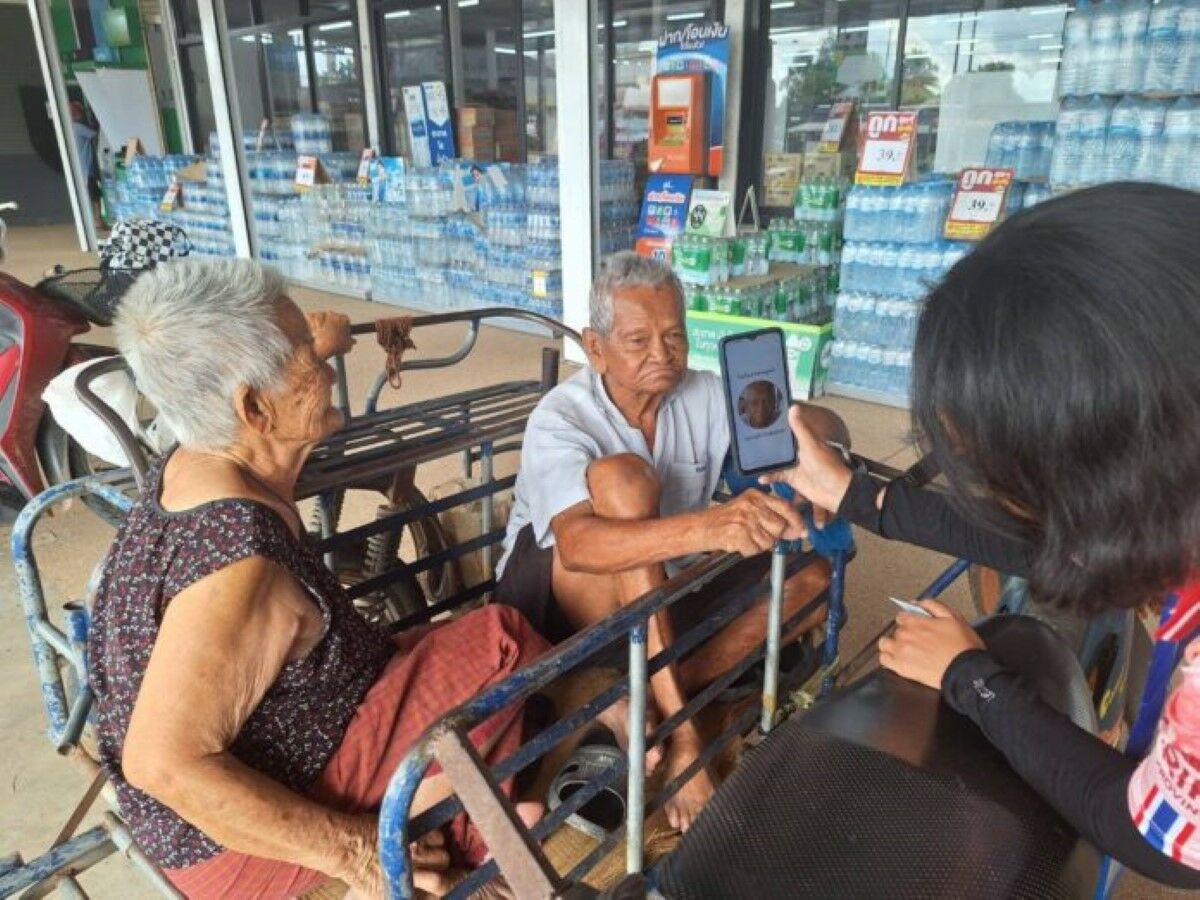New facial scan system leaves elderly Thai couple without welfare

An elderly couple in Buriram, who are heavily reliant on their state welfare cards, faced a significant hurdle with the new system requiring facial scans for verification. The couple, Lom Chaisuwan who is bedridden, and his 87 year old wife, anxiously await the outcome as their monthly welfare is a crucial part of their livelihood.
Yesterday, September 22, Lom, residing at 67 Moo 9, Ban Song Hong, Ban Dan district, Buriram, attempted to scan his face to gain access to his state welfare card benefits. The process, meant to allow him to purchase essentials from local shops, proved futile despite several attempts and different facial expressions, including smiling and frowning.
The shop staff spent over an hour trying to help, but ultimately, Lom’s daughter had to take him back home on a motorbike with a sidecar, empty-handed.
Due to Lom’s inability to walk, making a trip to the Krungthai Bank in the city for manual identity verification seemed challenging. The family would have to hire a vehicle to make this journey possible.
Lom’s daughter, 50 year old Sa-wang Rosahom shared that local villagers suggested Lom delegate the verification task to her through a power of attorney. However, there is uncertainty about whether this approach will succeed. Sa-wang expressed the necessity of this welfare money.
“The state welfare card has become a monthly hope for families like ours.”
The new facial scan requirement for state welfare cards has posed a significant challenge for many elderly residents who are not tech-savvy or physically able to comply. Lom’s case highlights the broader issue of accessibility and the need for more inclusive verification methods, especially for the elderly and disabled, reported KhaoSod.
The emotional toll and logistical hurdles faced by families like Lom’s underscore the importance of ensuring that welfare systems are both efficient and accommodating to all beneficiaries.
As the system stands, many elderly citizens may face similar predicaments, thus raising concerns about the practicality and fairness of the new verification process. Alternative solutions should be considered to avoid leaving vulnerable populations without their essential support.
Latest Thailand News
Follow The Thaiger on Google News:


























